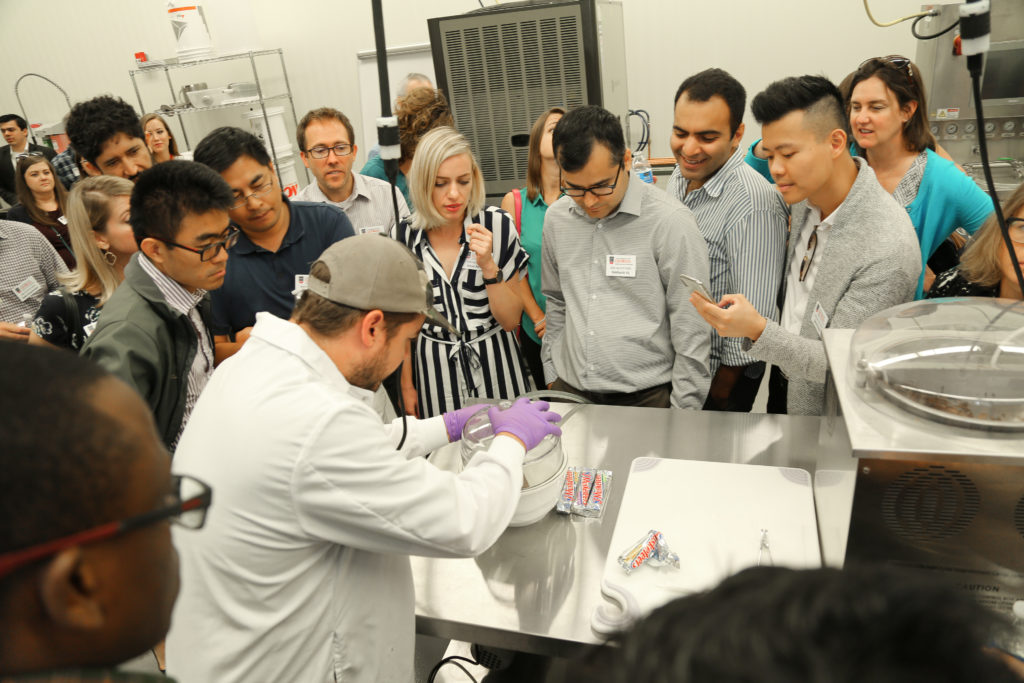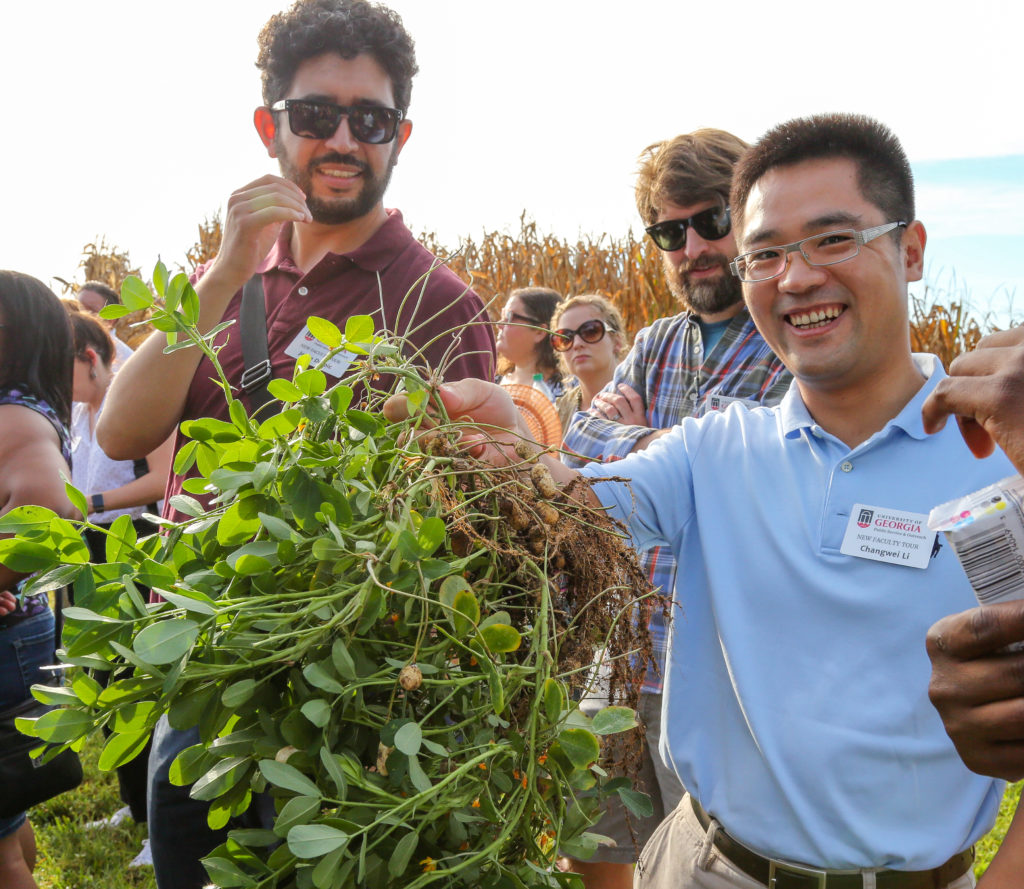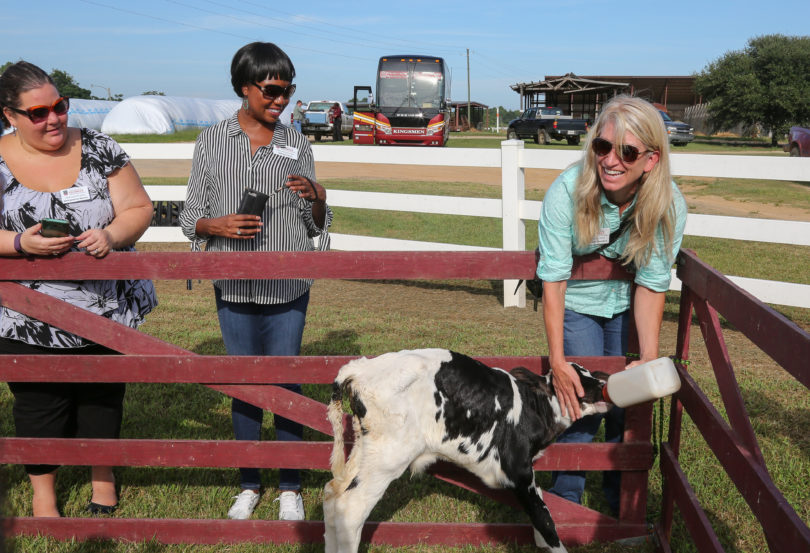New faculty at the University of Georgia learned why agriculture continues to be the state’s biggest economic driver and how UGA leads the way in helping Georgians sustain and improve commodities like peanuts, poultry, pecans and turf grass.
As part of this year’s New Faculty Tour, about 40 UGA faculty, who have been at the university for two or fewer years, visited the state’s oldest experiment station on the UGA Griffin campus as well as the Tifton campus, both of which now educate students as well as engage in groundbreaking research.

In Griffin, faculty toured the Food Product Innovation and Commercialization Center (FoodPIC), internationally recognized for helping food entrepreneurs develop food and beverage products. Clients have the opportunity to collaborate with UGA food science and food safety experts in Griffin and on the main campus in Athens.
The FoodPIC is a draw to food manufacturers looking to locate or expand in Georgia, said Sean McMillan, UGA economic development director based in Atlanta.
For example, Diana Foods, a global provider of natural ingredients to the food and beverage industry, was recruited to Georgia, but needed temporary research and development space when it first arrived, McMillan said.
“They were hosted by the FoodPIC for months before moving into a permanent facility in Banks County,” McMillan said. The company will ultimately invest $50 million in a food processing, distribution and research and development investment in Georgia and employ 80 people.

The group learned about the cutting edge work being done at UGA Tifton to improve agricultural practices across the state.
In Tifton, new UGA faculty learned about peanut research. Georgia produces more peanuts than any other state in the U.S., and UGA scientists in Tifton are continually studying ways to make the ground nut more disease resistant. Their findings are shared with farmers through UGA Cooperative Extension agents, who are based in each of Georgia’s 159 counties.
The faculty also visited the UGA dairy farm and fed bottles of milk to 2-week-old calves.
“This week has opened up a whole new world for me,” said Sakeena Everett, an assistant professor in the UGA College of Education. “I’m from the city and being here on a farm and feeding a calf is a new experience.”





